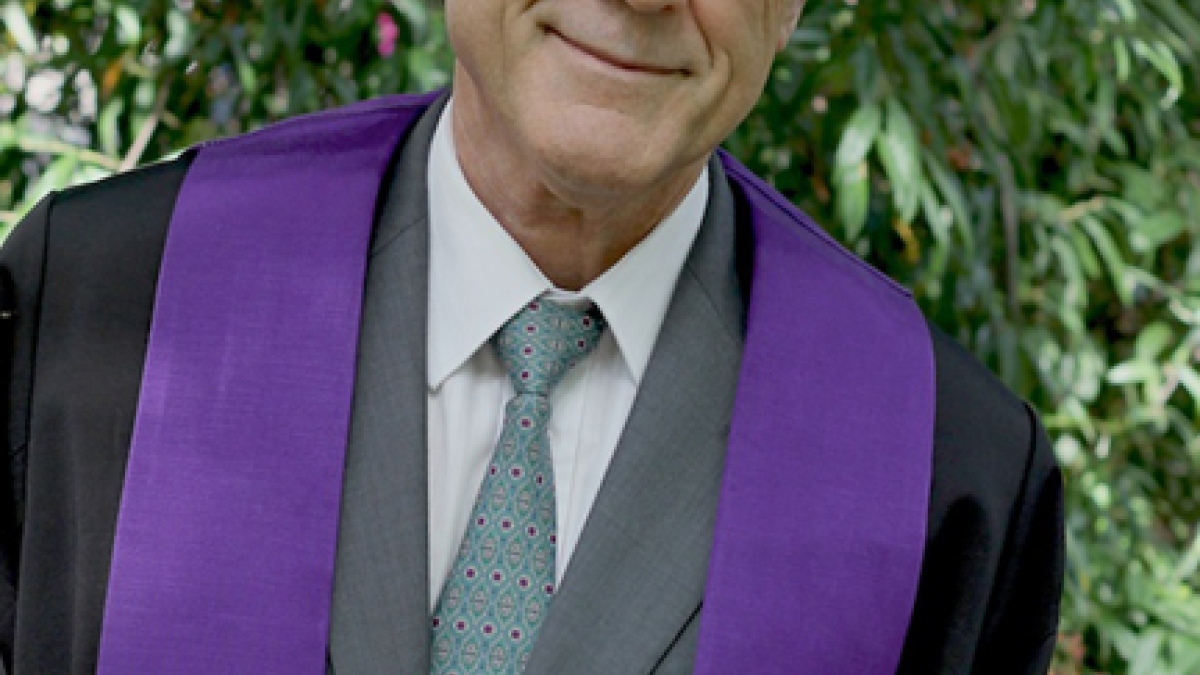'Adventurous' physicist Paul Davies receives UCL fellowship

"It was the swinging sixties; London seemed like the center of the world, or at least the center of popular culture, and physics was the ‘in’ subject to study,” recalled Paul Davies, a theoretical physicist and cosmologist at Arizona State University who at the time was an undergraduate at University College London (UCL).
Fast forward to this week when Davies received an honorary fellowship from UCL for his distinguished career in science. The UCL Honorary Fellow title is awarded to “persons who have attained distinction in the arts, literature, science, business or public life.” Davies completed a bachelor’s degree program in 1967 and earned a doctorate in physics in 1970 from University College London, which is consistently ranked as one of the top universities in the world (No. 7 in QS World University Rankings 2011-2012 and No. 20 in the 2011 Academic Ranking of World Universities by the Center for World-Class Universities of Shanghai Jiao Tong University).
“When I was an undergraduate, the dawn of the space age had just opened up new windows on the universe, while particle accelerators were finding new subatomic fragments at such a rate that physicists ran out of names for them,” said Davies, a professor of physics in ASU’s College of Liberal Arts and Sciences. Davies also is director of the BEYOND Center for Fundamental Concepts in Sciences at ASU.
“Today physics is as appealing as ever. We have pushed our understanding to the edge of the universe and back to the dawn of creation. We are close to identifying the basic building blocks of all matter and elucidating the properties of the fundamental forces. Yet, tantalizing mysteries still abound for the adventurous young scientist. I would choose physics again every time,” said Davies.
“Looking back on my career (so far!), I would say that being involved in the hurly-burly of research in theoretical physics has been not only mind-expanding, but enormous fun,” said Davies who now also directs the Center for the Convergence of Physical Science and Cancer Biology at ASU, one of 12 Physical Sciences-Oncology Centers receiving funding from the National Institutes of Health’s National Cancer Institute.
As a doctoral student at UCL, cosmologist Fred Hoyle was Davies’ external examiner. “I tackled some problems about the nature of time that still obsess me today,” said Davies.
“Paul Davies’ research has made substantial and widely recognized contributions to cosmology, including his development of the concept of the ‘Bunch-Davies’ vacuum state, as well as his work on black holes with astrophysicist Bill Unruh,” noted UCL in its introduction of Davies at a Sept. 5 ceremony. “Today, we are proud to welcome back our distinguished alumnus, whose powerful and sometimes controversial voice has added so much to the public understanding of science.”
Davies’ contributions to science communication were recognized in 2002 by the award of the Faraday Prize by the Royal Society
In presenting the honorary fellowship, UCL noted that “Paul Davies is a prolific author with a succession of acclaimed books, which present lucidly and sometimes provocatively basics concepts in physics and astronomy, and the broader philosophical implications of our current knowledge and understanding to the universe.” Among the more than 25 books authored by Davies are “The Goldilocks Enigma: Why is the universe just right for life?” “How to Build a Time Machine,” “The Mind of God” and the most recent, “The Eerie Silence: Are We Alone in the Universe?”
Davies’ contributions to fundamental physics were recognized with the Kelvin Medal by the Institute of Physics in 2001.
“Paul Davies is one of the world’s most exciting thinkers,” said ASU President Michael M. Crow in 2006 when Davies joined the ASU faculty. “He pushes the known boundaries of the universe with his inquiries, exploring profound questions about science.”
Another faculty member at ASU also is a UCL Honorary Fellow. George Poste, a Regents’ Professor and Chief Scientist, Complex Adaptive Systems Initiative, received the honor in 1999. Poste founded the Biodesign Institute at ASU and served as director from 2003 to 2009.